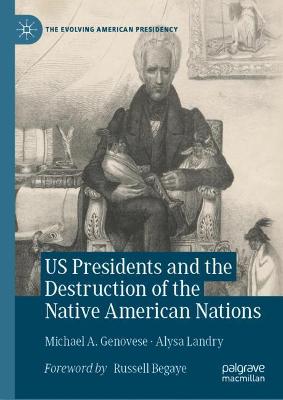The Evolving American Presidency
2 total works
The War Power in an Age of Terrorism
by Michael A. Genovese and David Gray Adler
Published 23 December 2016
This book features a lively debate between two prominent scholars-Michael A. Genovese and David Gray Adler-on the critical issue of whether the Constitution, written in the 18th Century, remains adequate to the national security challenges of our time. The question of the scope of the president's constitutional authority-if any-to initiate war on behalf of the American people, long the subject of heated debate in the corridors of power and the groves of academe, has become an issue of surpassing importance for a nation confronted by existential threats in an Age of Terrorism. This question should be thoroughly reviewed and debated by members of Congress, and considered by all Americans before they are asked to go to war. If the constitutional allocation of powers on matters of war and peace is outdated, what changes should be made? Is there a need to increase presidential power? What role should Congress play in the war on terror?
US Presidents and the Destruction of the Native American Nations
by Michael A. Genovese and Alysa Landry
Published 9 October 2021
This book examines how the United States government, through the lens of presidential leadership, has tried to come to grips with the many and complex issues pertaining to relations with Indigenous peoples, who occupied the land long before the Europeans arrived. The historical relationship between the US government and Native American communities reflects many of the core contradictions and difficulties the new nation faced as it tried to establish itself as a legitimate government and fend off rival European powers, including separation of powers, the role of Westward expansion and Manifest Destiny, and the relationship between diplomacy and war in the making of the United States. The authors' analysis touches on all US presidents from George Washington to Donald Trump, with sections devoted to each president. Ultimately, they consider what historical and contemporary relations between the government and native peoples reveal about who we are and how we operate as a nation.

